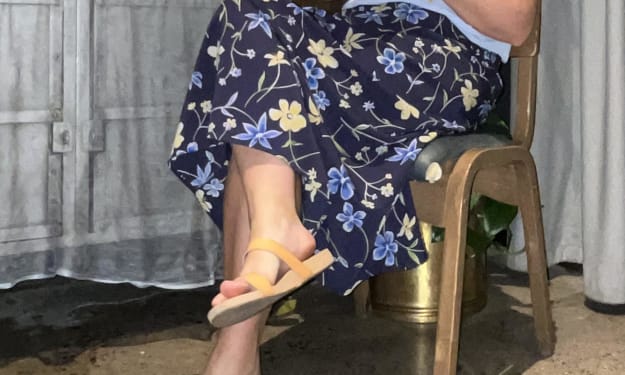
“I don‘t need your pity nor your sermon, I only need you to understand me.“
Whenever my friends or fellow youth in our church share their personal problems before, I always say “Oh, I have experienced that as well! You know what...” I tried to prove how I can relate to their situation by sharing what happened to me and by strongly agreeing with what they felt. I did it ‘passionately’ every time thinking it was helpful and what they need.
However, I failed to realize how I was slowly stealing the spotlight and the chance to listen carefully and fully to their story. How I wish there were lessons earlier about empathy during that time and maybe I could have changed the way I responded.
However, we cannot undo the past but we can surely make the future better by unlearning the old ways and embracing the effective ones. The video ‘How Empathy Works’ is one of the contents that are helping me improve not only for the sake of being a journalist but most of all as a daughter, sister, friend, and, more that impacts the circle of my influence with every word I will impart. In the first part where they showed how sympathy works, I saw the stickman transformed into my former self excitedly helping yet blindly amplifying the negative emotion of my friend. That short seconds of animation resurfaced my buried guilt.
Nevertheless, it reminded me of where I learned.
As it was stated, it is important that we do not make them feel like a total victim. It does not mean, however, that we intend them to be invalidated. Based on my observation of my friend who’s in constant battle with anxiety due to family conflicts, she tends to become more defensive and distant whenever I try to give her advice according to her situation. Looking back, my approach surely made her feel like I saw her as someone who always needs guidance when during those moments she only needed someone who will simply listen and make her feel understood.
The works of empathy part of the video assured me that I am now on the right path when empathizing. When I realized those mistakes after some seminars and workshops about mental health, I patiently tried this new approach.
Although it is hard at first to keep your self from giving pieces of advice instinctively as a friend who worries for them, I did my best to keep my mouth shut and my ears focused while I paid attention to their body language. I applied the affirmation that I am listening as I nod or sometimes repeat what they said. After their time of sharing, I learned to ask permission if they want advice and I never end our talk without sharing encouragements, prayers, and assurances that no matter what, I will be there. Starting these ways made a difference on our dynamics. Now, that dear friend is more open and willing to share than ever before.
On the other hand, there is a realization that empathy in journalism could be manifested in various ways not only in interviews which is similar to our life’s conversation but most importantly in our conducts regarding our profession. For instance, in an old movie “Bayan Ko Kapit sa Patalim,” the ending part showed how reporters hurriedly took pictures of disoriented and weeping Luz while she was holding her lifeless husband in her arms who is a suspect of hostage.
Now, their sympathy might be reason why their immediate act was to capture this pitiful situation and to broadcast it to the mass. However, this highly sensitive situation after a traumatic incident for me deserves an empathy of reporters who would place their own feet in that tragic moment and think “Would I want this painful situation to be instilled in the mind of the whole nation?”
People may say “What can I do? It is our job.” But during this incidents, being human is more important than our task. The rewarding feeling of capturing such evoking scenes should not be at the expense of upholding humanity. Unfortunately, this happens in our real life. I hope this new generation would be more empathetic than sympathetic no matter what their role and position is as truth teller and media practitioner. We need more journalist who will not only think of the mass but also the welfare of the story’s subject. We must be one.
“Empathy is wearing other’s broken shoes as we walk with them. Sympathy is feeling sorry that their feet hurt and saying how your feet is also in pain.
About the Creator
Betchie Villar
A graduating journalism student at Polytechnic University of the Philippines. Writes and reads constantly. Sketches and paint here and there. Photographs on occasion. Loves playing music all the time. Maximizes art in different forms.
Enjoyed the story? Support the Creator.
Subscribe for free to receive all their stories in your feed. You could also pledge your support or give them a one-off tip, letting them know you appreciate their work.






Comments
There are no comments for this story
Be the first to respond and start the conversation.